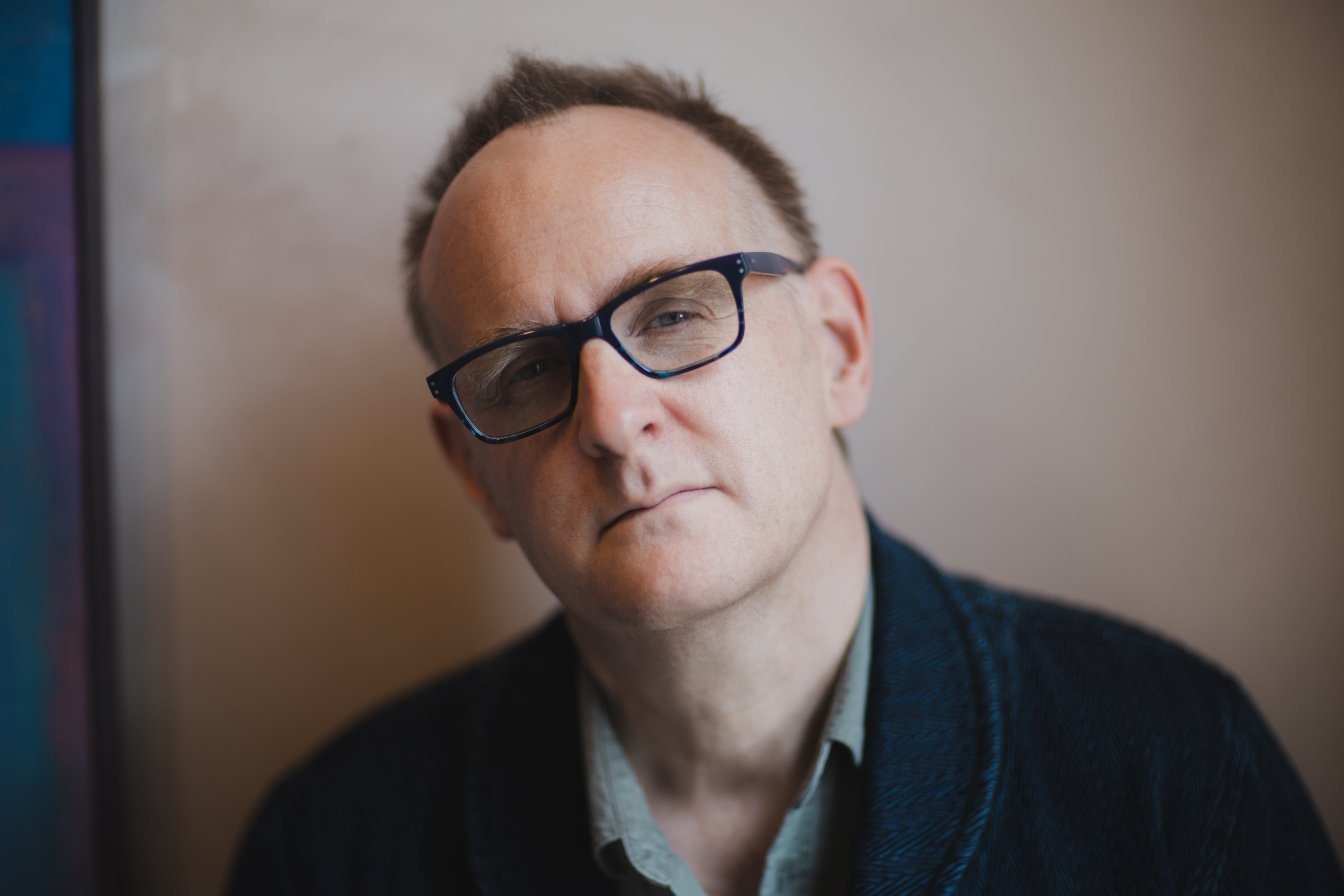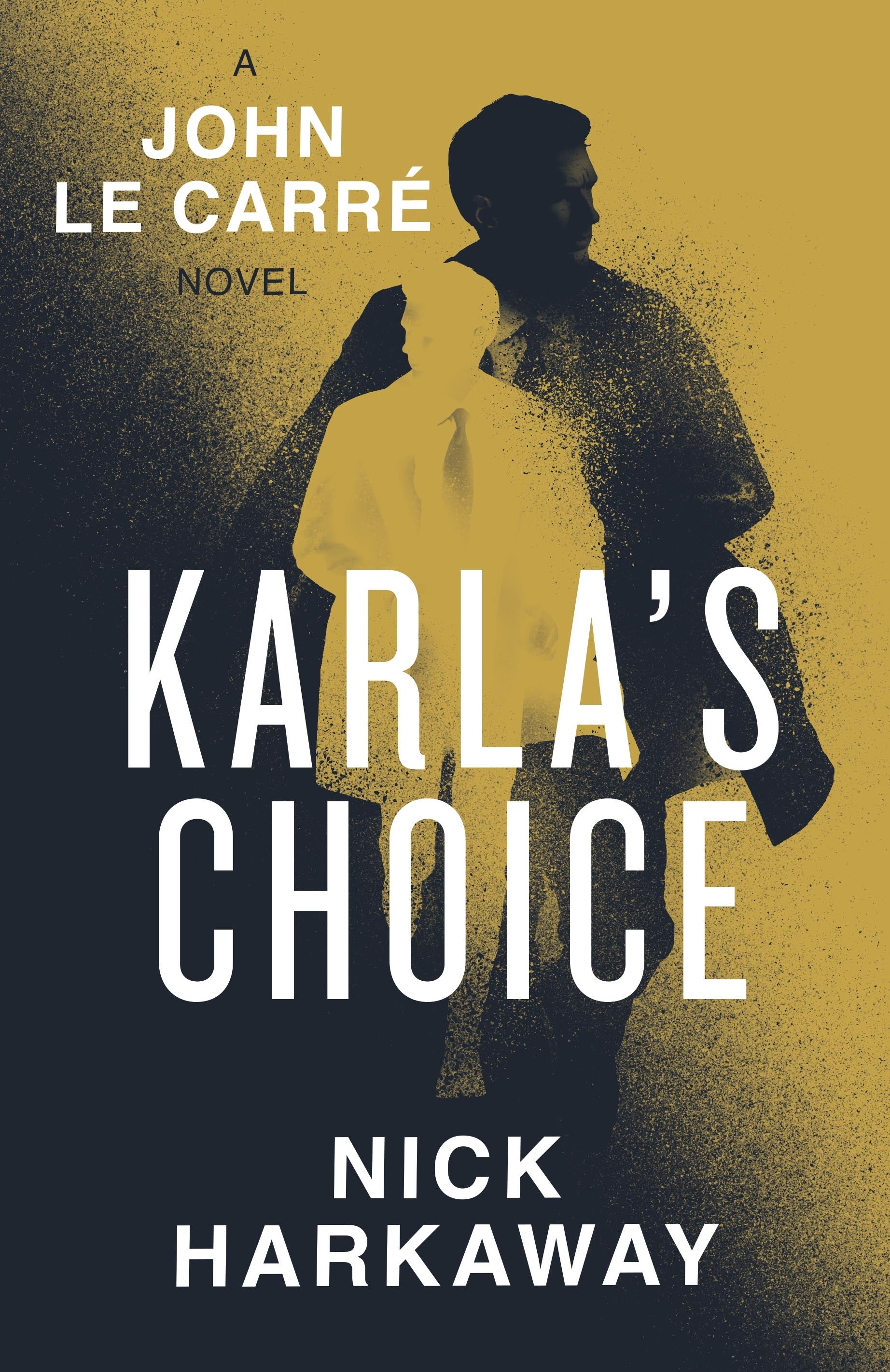‘Oh God, what have I done?’: John le Carré’s son on bringing back George Smiley after his father’s death
Nick Harkaway talks to Nick Duerden about his father’s multiple affairs, death threats and what really lead to his decision to revive the renowned spymaster’s most famous literary creation


Until recently, Nick Harkaway had gone to some considerable effort to distance himself, professionally speaking, from his father. There was good reason for this: his father was John le Carré, the world’s favourite writer of spy thrillers. His was a shadow Harkaway did not care to dwell under.
“But that’s all changed now,” he says, smiling hesitantly. “Oh God, what have I done?”
This week, the 51-year-old, who has previously made a name for himself as the author of seven well-regarded novels of speculative fiction, is putting his own literary career aside in order to revive his father’s most famous creation.
Karla’s Choice features George Smiley reborn, just under four years after le Carré’s death at the age of 89. Smiley, of course, remains one of the Cold War’s most celebrated spies, an MI6 operative who negotiated the world of undercover agents with an attention to detail – and a distinct absence of flash – that made him perhaps the most authentic literary spy in the canon.
Smiley’s brand of espionage often took place at a desk, and it was a job that required one to have patience in order to reap the dividends. Due diligence was, and necessarily remains, the underlying tenet. As Harkaway says at one point in his new book, echoing his father’s sentiments: “The best intelligence work is slow”.
Now that the book is ready for publication, expectations among Smiley’s legion of fans are high.
“How am I feeling about it?” he says. “Terrified.”
Harkaway greets me at the door of his northwest London townhouse dressed in a polo-neck jumper, turned-up jeans, and fluffy white slippers. He leads me through a narrow hallway and into a bright living room filled with antique furniture, and it is here, around a coffee table, that we are to discuss the undeniably brave but also most scrutinised career decision of his life.
“You see, my father had always planned to write more,” Harkaway says. And he would have, had he not faced what all writers must eventually confront in their lives: the end. There were in total nine Smiley novels, beginning in 1961 with Call for the Dead, and ending as late as 2017 with A Legacy of Spies, but Harkaway never had any intention of picking up that particular thread until the suggestion was made to him by his older brothers Simon and Stephen, both film producers.
An easy decision, then?
“What you have to understand,” he says, “is that I was born in 1972, and so Smiley, for me, was very formative.” While growing up, his father would read aloud to him in-progress chapters before he went off to school. “And so from the ages of zero to eight, the time when you first acquire language, I was learning to communicate while listening to George Smiley.
How am I feeling about the book? Terrified
“I think what I’m trying to say,” he adds, “is that when I came to write Karla’s Choice, I didn’t have to turn the dial very far to find him in myself.”
After his father’s death – and in a plot development that would please most fiction writers – a letter was discovered. “It asked us to ensure that the books continued to be read, to broaden the audience, and to reach new audiences. The authorial wish was clear: I want to be remembered, I want my work to continue.”
This, of course, could be a plea from any successful writer whose ongoing series will be stymied by the fact of their death. But death no longer has to be the end. When Ian Fleming died, James Bond continued – on the page – in various iterations, the baton picked up by the likes of Kingsley Amis, Charlie Higson and Sebastian Faulks. AI might well have stepped up for Smiley, but no one has asked it to – yet. When I ask Harkaway if money was an incentive, he bristles.
“Do you mean did I get paid?” he says. “Well, the advance goes to John le Carré Ltd, and I have a deal with them. It’s a work-for-hire job; it’s for the estate. They hold the rights, and they’ve done a deal to commission me.”
But he is part of the estate, no?
“Yes. My wife is the managing director, my brothers are directors, and together we answer to the estate.” That sounds complicated, I say. “It’s not complicated, it’s convoluted.”
Nevertheless, the money must have been good? “Sure, but I wouldn’t have done it just for the money. I did it because I wanted to. It was the logical thing to do.”
As he talks, Harkaway runs a finger through a pair of bushy, and distinctly familiar, eyebrows. Literary ability isn’t the only thing he inherited from his father.
“I did find it the most extraordinary challenge,” he continues, “but it was also an unmissable opportunity to have the kind of apprenticeship with my dad that I never really had with him in life.”
While writing it, he would share chapters with his brothers, his wife, his father’s agent, each of whom made approving noises. But now it’s about to face that considerably harder-to-please crowd: the faithful, many of whom still hold Smiley close to their hearts.
“Will readers like it?” he worries. “I’ll have to wait and see. In many ways, I can’t win, but I can’t lose, either. There will be a given percentage of people who will just hate it for existing, and also a given percentage of those who will love it for the same thing. I’m fine with that. It’s the people in the middle who are my target audience, and that’s who I care about reaching. I hope I will.”
Karla’s Choice is set in 1963, slipping easily between the time of The Spy Who Came in from the Cold (1963) and Tinker Tailor Soldier Spy (1974). It revolves around a Russian agent who has defected in circumstances unusual enough to require Smiley to come out of notional retirement and investigate. Harkaway has been careful to honour his father’s universe while gently asserting his own imprint. It moves at a deliberately meticulous pace and features many characters that will be familiar to those with a good memory. The voice throughout is very le Carré.

“Mostly, I needed to get the tone right,” he says. “That to me felt particularly important.” And did he succeed? “I think so, yes.”
Harkaway grew up in Cornwall, the son of le Carré and his second wife, the book editor Jane Eustace. (Le Carré, whose real name was David Cornwell, had three sons with his first wife, Alison Sharp, including journalist Tim Cornwell, who died in 2022 shortly after editing a book of his father’s letters.) Harkaway describes his early life as “nice, settled”, and, if his father was occasionally remote, he was nevertheless often present, and dutifully at his desk.
But John le Carré’s private life was as eventful as the life he carved out for his literary hero. Not only had he once been a spy himself, but in a recent biography of him by Adam Sisman, The Secret Life of John le Carré (2023), it was revealed that the writer was a serial adulterer, conducting multiple affairs over many years. Speaking shortly after its publication, Sisman said: “You can see how he uses woman after woman as characters in his books. He used them to create a sense of drama in his life, which was otherwise rather dull.”
The young Nick Harkaway, of course, was oblivious to all this.
“As far as I was concerned, I was living a perfectly happy, normal family life,” he says, frowning. “I mean, yes, OK, their marriage was complex and non-standard, but that makes it sound more dramatic than it was. My mother always considered herself a winner. She held the field. True, there were mistresses, but she stayed, and he returned reliably to her, every single time. My experience of them was that they were a unit. They were sometimes fractious, but my mother was nevertheless a partner in that relationship. She could have left at any time but chose to stay. It was she who created the environment in which he could work, and function. That,” he stresses, “was how she chose to affect the world.”

Le Carré’s wife, Jane, died two months after him, from “a broken heart”, according to a family spokesperson at the time. Throughout the 1960s and 70s, le Carré was a literary superstar, his books selling millions. He was also a bona fide target for the paparazzi. “They used to lean long lenses over the garden fence to try to get photographs of him,” Harkaway recalls, adding “and when he wrote books that people didn’t like, he’d get death threats from unhappy readers. That was… strange.”
His father often struggled with his fame. “He was gracious about it, but it troubled him. He was an introvert.”
Harkaway always craved a very different life for himself. Knowing it would be foolish to even try to follow in his father’s footsteps – hence, in part, his pen name of Harkaway – he initially tried his hand at screenwriting. “I enjoyed it, but it was frustrating, all those screenplays unproduced. I’d write a tight urban thriller set in, say, Camden Town, but producers would ask me to change it so that it was set on the moon. I’d then do this, but they’d hate it, saying that they couldn’t understand why I’d set it on the moon…”
After starting a family, he did eventually turn to fiction, but of a markedly different kind. His books were sci-fi-adjacent – popular, he suggests, “amongst people who like films like Blade Runner and the writing of William Gibson”. One novel, 2023’s Titanium Noir, was about a drug that could make people young again, but in taking it they’d grow 20 per cent bigger. A worthwhile sacrifice? “I loved fusing completely distinct genres together, but I was told by publishers that these were hard to market...”
He says he will continue to write his own novels, and hopes to continue with Smiley, “if there is the demand for them, of course”. If there is, he’ll happily comply. Karla’s Choice may have been a challenge, but it was a welcome one.
My father was gracious about his fame, but it troubled him. He was an introvert
“I suppose that the desire while writing it was to look up occasionally from my desk and see the Obi-Wan Kenobi version of Dad sitting in the chair and nodding, telling me to remember the semicolon. That didn’t quite happen, but what I did gain by being in the same place as him was touching the same problems, turning them over in the same way, and becoming creatively aligned with him, coming fully to understand his process. That felt,” he says, smiling to himself, “… it felt like a gift.”
‘Karla’s Choice’ is out now



Join our commenting forum
Join thought-provoking conversations, follow other Independent readers and see their replies
Comments